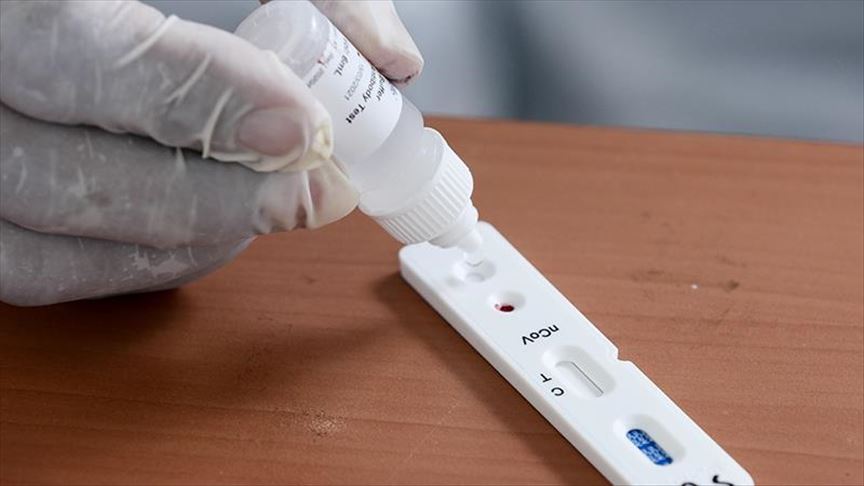NCDC monitoring new subvariants of COVID-19
The Nigeria Centre for Disease Control and Prevention (NCDC) is closely monitoring the emergence of new subvariants of the Omicron variant of the SARS-CoV-2 virus. The Director-General, NCDC, Dr Ifedayo Adetifa, gave the assurance in an interview with the News Agency of Nigeria (NAN) on Saturday in Abuja. These subvariants, named EG.5 and BA.2.86, have […]

FILE PHOTO: COVID-19 test kits
The Nigeria Centre for Disease Control and Prevention (NCDC) is closely monitoring the emergence of new subvariants of the Omicron variant of the SARS-CoV-2 virus.
The Director-General, NCDC, Dr Ifedayo Adetifa, gave the assurance in an interview with the News Agency of Nigeria (NAN) on Saturday in Abuja.
These subvariants, named EG.5 and BA.2.86, have been reported in several countries.
While the EG.5 variant has been classified as a “variant of interest” with a low global risk, the BA.2.86 variant is currently under monitoring due to its substantial genetic differences from other circulating variants.
NAN reports that an update from the U.S. Centre for Disease Control and Prevention (CDC) shows that at least two cases subvariant BA.2.86 have been identified in the U.S.
This prompted the centre to issue a risk-assessment summary on Aug. 23, explaining what is known about it so far.
Adetifa said that the NCDC, along with its partners, was actively conducting surveillance and implementing enhanced testing measures to gather more information about these emerging variants.
“It is important for the public to stay informed with verified information and continue practising preventive measures to protect themselves and their loved ones,” he said.
He noted that the subvariants, EG.5 and BA.2.86, had been reported in countries such as China, U.S., Republic of Korea, Japan, Canada, Australia, Singapore, United Kingdom, France, Portugal and Spain.
“The EG.5 variant, which is a descendant of XBB.1.9.2, has been identified in 51 countries. The World Health Organization (WHO) has classified EG.5 as a Variant of Interest (VoI).
“However, a risk assessment conducted by the WHO has determined that this new variant poses a low risk at the global level.
“It is important to note that EG.5 has not been associated with any change in symptoms or clinical manifestations, nor has it resulted in an increase in the severity of illness, hospitalizations, or death rates.
“The symptoms caused by EG.5 are similar to those seen with other COVID-19 variants, including fever, cough, shortness of breath, fatigue, muscle aches, headache and sore throat,” he said.
According to him, on the other hand, the BA.2.86 variant, a descendant of BA.2, has been reported in a handful of countries, including the United Kingdom, Israel, Denmark, South Africa and U.S.
The director-general said that WHO had classified BA.2.86 as a Variant under Monitoring (VuM) due to its multiple genetic differences from its ancestor – BA.2, and other currently circulating XBB-derived SARS-CoV-2 variants.
“As there are only a few reported cases of BA.2.86, there is not enough information to make conclusive assessments of its virulence, transmission and severity.
“However, it is expected to be similar to other Omicron descendants currently circulating.
“It is worth noting that while the ancestor BA.2 has been previously found in Nigeria, no BA.2.86 variant has been identified in the country,” he said.
He said that the NCDC’s COVID-19 Technical Working Group (COVID-19 TWG) was actively monitoring COVID-19 epidemiology at the local, regional, continental and global levels, including the emergence of new variants.
He said that the NCDC would continue to monitor the situation globally, especially in countries where the new variants had been confirmed. (NAN)
